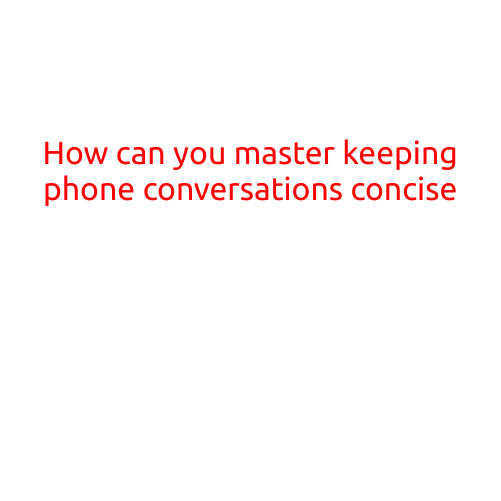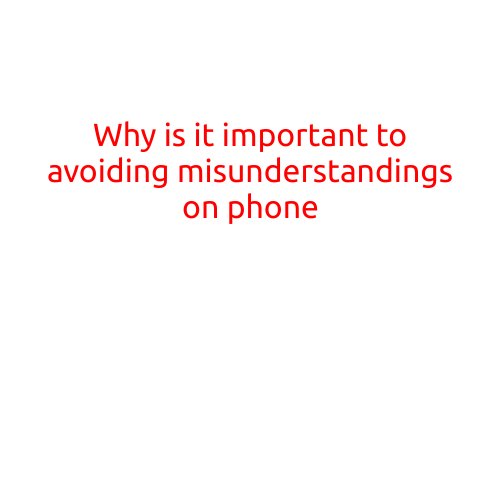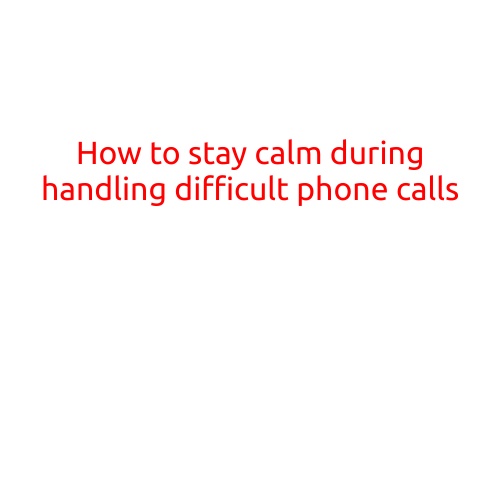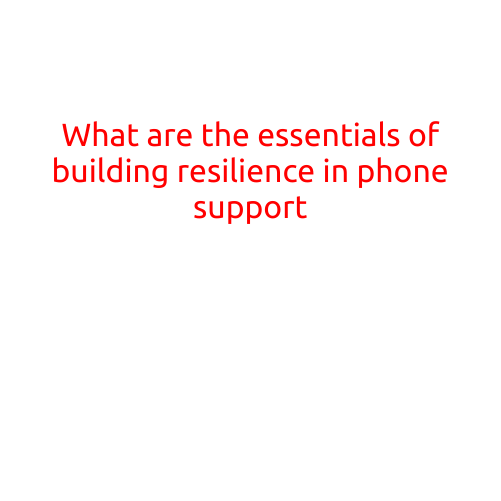
How can you master keeping phone conversations concise?
In today’s fast-paced world, our attention spans are shorter than ever before. When it comes to phone conversations, it’s easy to get caught up in lengthy discussions that leave you wondering where the time went. Mastering the art of keeping phone conversations concise is essential for effective communication, saving time, and building stronger relationships. In this article, we’ll explore the key strategies to help you keep your phone conversations brief and impactful.
Understand the purpose of the call
Before you start the call, define its purpose. What do you want to achieve? What questions do you need to answer? Having a clear understanding of the call’s objective will help you stay focused and avoid unnecessary chit-chat. This will also enable you to tailor your conversation to the specific topic at hand, keeping it concise and relevant.
Keep a laser-like focus
Resist the temptation to veer off topic or get sidetracked by unrelated matters. Stay focused on the agenda and avoid digressing into tangents. Practice active listening by acknowledging the other person’s points and summarizing the key takeaways. This will help you stay on track and ensure the conversation remains concise.
Use the 1-2-3 rule
When sharing your thoughts or ideas, use the 1-2-3 rule: keep your points to one main idea, expand on it with two supporting details, and then summarize it in three key takeaways. This structure will help you present your message clearly and concisely, making it easier for the other person to follow.
Avoid filler words and phrases
Be aware of filler words and phrases like “um,” “like,” “you know,” and “basically.” These verbal crutches can make your conversation seem less efficient and more meandering. Practice speaking with confidence and clarity, and eliminate these unnecessary sounds from your speech.
Use silence strategically
Silence can be a powerful tool in phone conversations. Use it to gather your thoughts, pause for emphasis, or allow the other person to speak. Don’t be afraid to take a moment to reflect before responding, and silence can help you stay concise and intentional in your communication.
Prepare an agenda
Before the call, prepare a mental or physical agenda outlining the key points you want to cover. This will help you stay organized and ensure that your conversation is structured and concise. Consider sharing your agenda with the other person in advance, so they know what to expect.
Practice, practice, practice
Like any skill, mastering concise phone conversations requires practice. Pay attention to your language, tone, and pace during calls, and identify areas for improvement. Practice using the strategies outlined above, and you’ll become more comfortable and confident in your ability to communicate effectively.
Conclusion
Mastering the art of keeping phone conversations concise is a valuable skill that can benefit your personal and professional life. By understanding the purpose of the call, staying focused, using the 1-2-3 rule, avoiding filler words, using silence strategically, preparing an agenda, and practicing your skills, you’ll be well on your way to becoming a pro at concise phone conversations. Remember, the goal is to communicate effectively and efficiently, not to prolong the conversation for its own sake. With practice and dedication, you’ll be able to have meaningful, concise conversations that leave a lasting impact.





